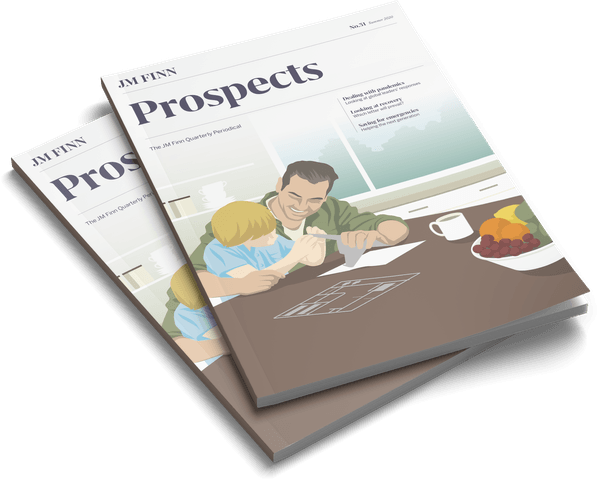From as early on as mid-March, the government was forced to introduce measures to support those affected by Covid-19, which have amounted to billions of pounds. Whilst these measures were much needed, and the effect they have had cannot be underestimated, it will at some point be necessary for the government to fund these measures. How it will do so is yet to be seen, but one of the obvious routes is via tax hikes. Ian McCafferty (who previously sat on the UK central bank’s Monetary Policy Committee) has been quoted as saying “We will have to pay for the fiscal action that’s been required…Growth will not be sufficient on its own”.
For those who have already seen the value of their estates diminish, tax hikes are unlikely to be welcome news. With this in mind, now is the time for those who are in a position to do so to undertake some estate planning and take advantage of the current tax rules and the lower asset values. In the normal course of events, it is very difficult to pass on wealth to future generations without some exposure of risk to a tax liability, either now or in the future. Although we are still weathering the economic storm caused by Covid-19, we do know what the current rules are, and with some careful planning and utilising the rules (and in particular the reliefs available) as they stand at present, there is an opportunity to pass on wealth to future generations.
For those who have already seen the value of their estates diminish, tax hikes are unlikely to be welcome news.
For example, those with investment properties who have seen the values of the properties fall could consider gifting one or more properties to future generations. For inheritance tax purposes, the value of the gift (which generally speaking, falls away provided the person making the gift survives by seven years) will be lower, meaning that if it is brought into account when working out any liability to inheritance tax the potential tax bill is less.
The same premise applies to any potential capital gains tax liability. A gift is a disposal for capital gains tax purposes and if the value of the property is above its acquisition cost, the overall capital gains tax bill will be less (and there may be other reliefs, exemptions or allowances that can reduce the overall bill further).
With the above in mind, now is also a good time for those who are thinking about estate planning from an asset protection point of view, as there is the opportunity to combine estate planning with tax planning. Those who have been considering how best to pass on wealth whilst ensuring it is protected for future generations are often advised to create a discretionary trust which would allow the beneficiaries to potentially benefit from the assets put into trust, whilst ensuring that the person creating the trust retains some control over the assets.
Now is a good time for those who are thinking about estate planning from an asset protection point of view.
The creation of a discretionary trust is a ‘chargeable lifetime transfer’ giving rise to an immediate charge to inheritance tax to the extent that the transfer exceeds the available nil-rate band. This has meant that those creating such trusts have only been able to put assets into the trust with a limited value. The fact that the value of assets has fallen means that there is the opportunity to put more into such a trust and get the future capital growth out of their estates.
Creating such a trust is also a disposal for capital gains tax purposes but it is possible to defer any gain arising so that this is taxed on the trustees or the beneficiaries depending on the circumstances. With some careful planning it is possible for the gain to be eradicated over time.
Although the current circumstances do present those who want to with an opportunity to undertake some effective estate and tax planning, given that it is quite possible that we will see a hike in taxes further down the line, it is advisable to consider the simple, tried and tested methods first before looking at complex arrangements. It has been known for legislation to be introduced to combat complicated tax avoidance schemes and it waits to be seen what measures the current or future Chancellors need to put in place.
Bruce Clarke is a Partner in Sussex and Kent based law firm, Rix & Kay and an expert in inheritance tax.
bruceclarke@rixandkay.co.uk
www.rixandkay.co.uk
The above must not be taken as advice and is generic. Advice should be tailored to an individual situation and it would be strongly recommended that such advice is sought on any of the above.
Illustration by Adam Mallett




